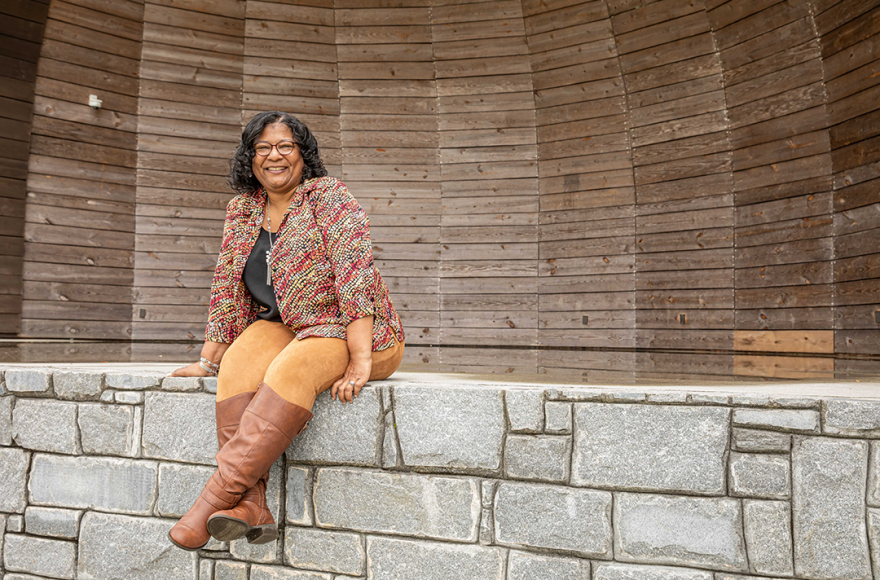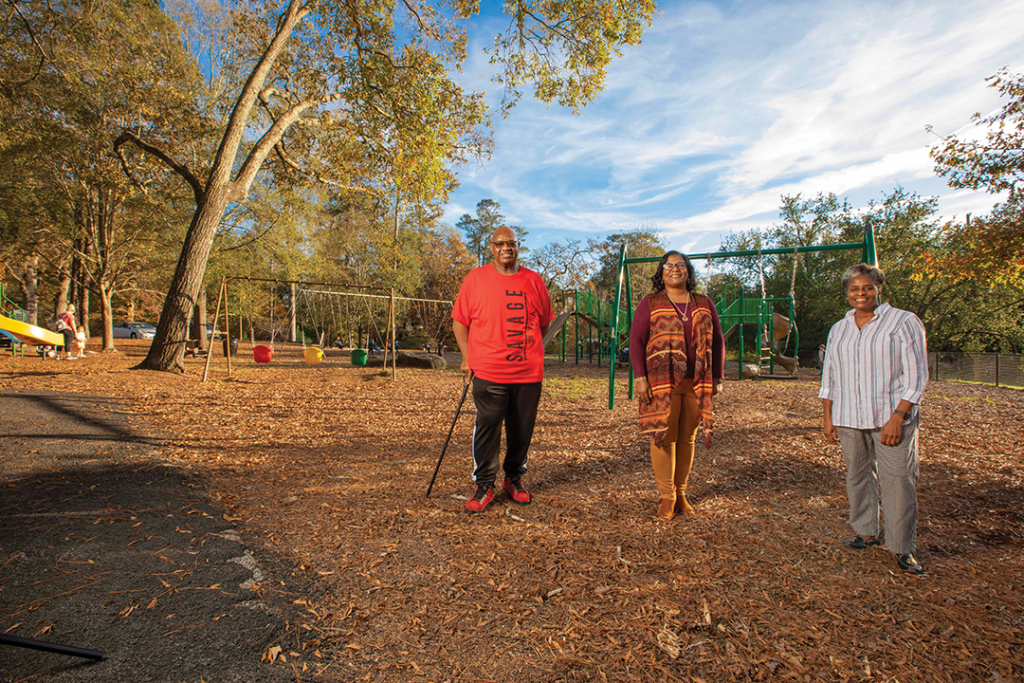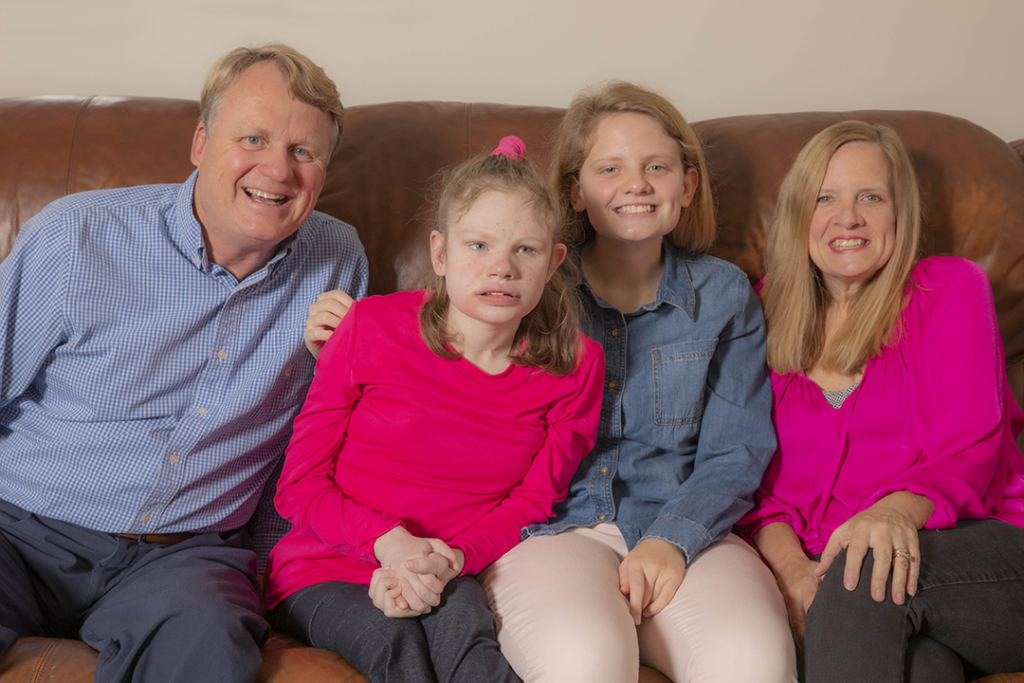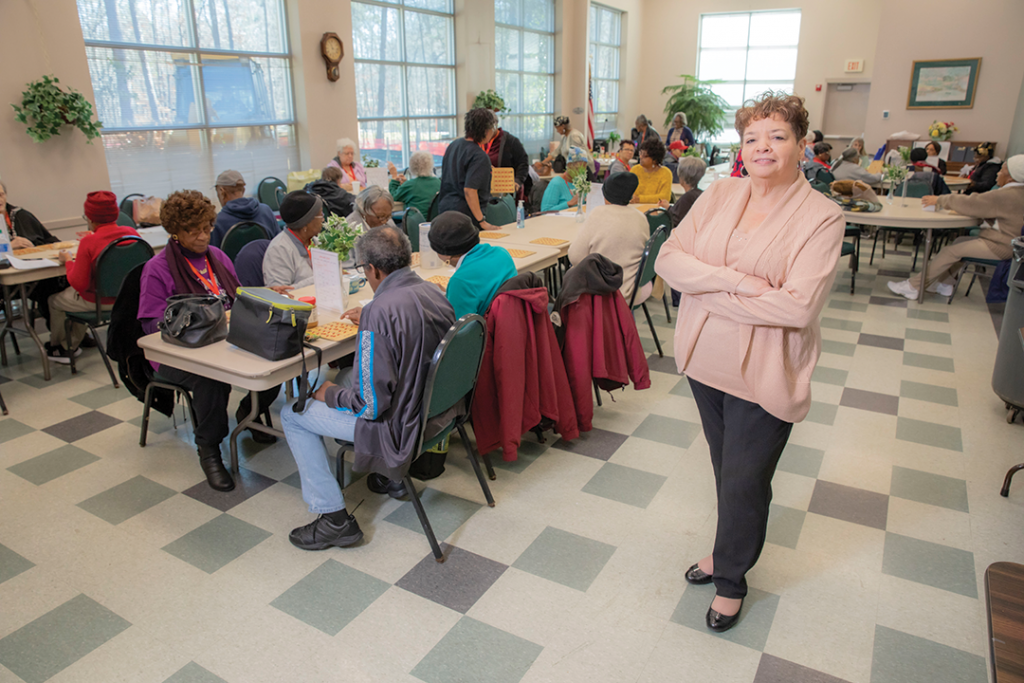Domestic violence had such a hold on Kathy Suber that she contemplated suicide in her early 20s. Today, she works to end the stigma often attached to those who have endured abusive relationships.
I locked the bathroom door and sat down on the edge of the tub, listening to the usual quietness. For months, I’d been hoarding the prescription pills that my doctor had prescribed for the unexplainable stomach bleeding. They were on the bathroom counter in a plastic bag, mixed with pills that were either old or taken from my parents’ medicine cabinet. Next to the bag of pills laid the Smith & Wesson my daddy had given me for protection against home invasion. Funny how the threat was living inside my home, but I was thinking of using the Smith & Wesson on myself.
She was only in her early 20s, but domestic violence had already broken Kathy Suber to the point of despair. She knew suicide was not the answer, but nothing else felt like an escape route, either. Leaving her pain-ridden life seemed the best way out. Even if she could swallow the shame enough to talk about what was happening, who would believe her? He was her college sweetheart; he was never violent while they were dating; and he was always so nice around everyone else.
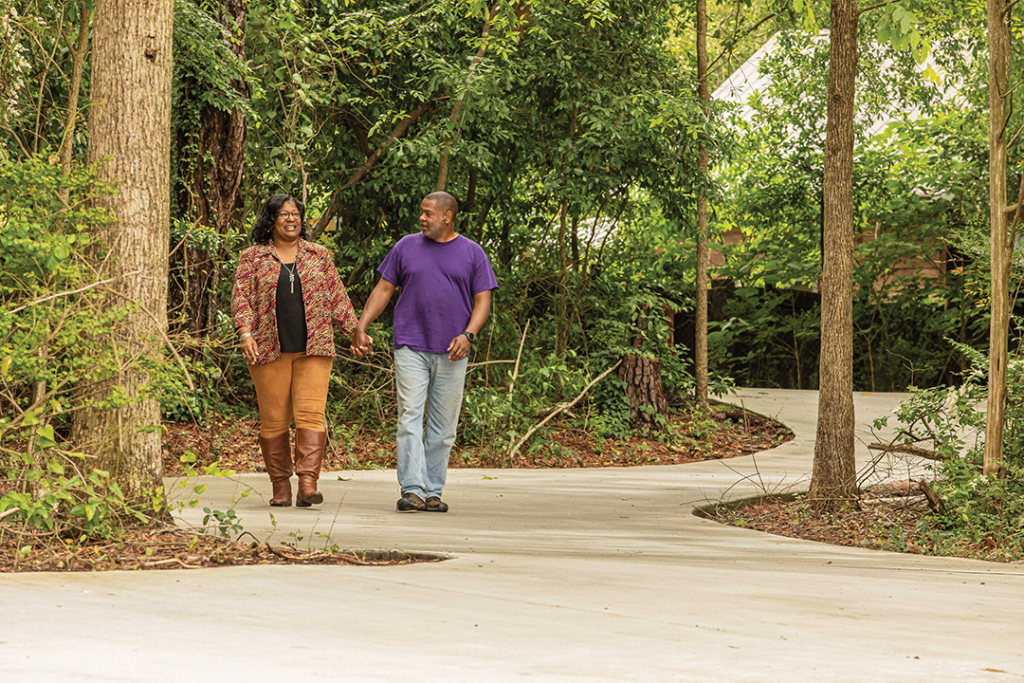
I walked around my home on eggshells because I was afraid to wake the angry giant. He would physically push me around. He would choke me. He would violate me, then hold our son in his arms, blocking the door to keep me from leaving. He told me that I was nothing. He told me that nobody would want me with a son. He told me that I could not make it without him. Unfortunately, for years, I believed every word.
Like many in her generation, Suber was raised with the mindset that what happens at home, stays at home. It was not anybody’s business what happened behind closed doors. Suber now works to end that shame-fueled silence. She intends to make domestic violence education everyone’s business. Suber launched Place to Prosper in 2019 as a way to help other victims of domestic violence leave their abusive situations and enjoy healthy, independent lives. Her 501(c)(3) nonprofit currently provides an interactive podcast and a workshop to educate and empower people living in perilous situations. Suber dreams of opening a shelter for residents in Newton, Walton, Rockdale and Henry counties who need a safe place to go. “My desire,” Suber said, “is to educate those in the community about what domestic violence does to people and to also save the lives of those who have experienced that trauma.”
“My desire is to educate those in the community about what domestic violence does to people and to also save the lives of those who have experienced that trauma.”
Kathy Suber
My son Contrareus is the reason I chose to live. His light, his life, is what caused me to walk out of that bathroom. I remembered a time when I’d been sitting by my window, crying, watching him play outside. All of a sudden, he turned toward me and ran toward the apartment. I wiped my eyes because I didn’t want him to see my pain. He burst through the front door and ran into my arms with a full hug. “Mommy,” he said, “it’s going to be alright.” With that God-sent memory, I stood up and decided to live for him.
Suber worried that leaving her abuser would not be easy. In fact, the National Coalition Against Domestic Violence states that leaving an abuser is often the most dangerous time. Masters of manipulation, abusers often threaten to escalate violence if their partners attempt to leave. Some make grand promises to change but never follow through.
When I decided that enough was enough, he tried to convince me to stay. All of a sudden, he became this “nice” person, saying over and over again that he wanted his family. Some part of me was smart enough to know that I could not and would not continue to stay in that marriage, because I knew that the next time, I might not stop myself from hurting him or myself. Then, the only thing important to me—my son—would have suffered.
Fortunately for Suber, she did not have to create an escape plan to leave in secret, as many victims do. “I simply told him one day that I wanted a divorce and didn’t want to be with him anymore,” she said. “He didn’t respond physically or anything.” Suber advises those who know someone in an abusive relationship to let them know they are there for them—to listen and to help when they are ready to act. “You can’t force someone to leave a situation,” she said. “You have to understand that the victim is truly afraid. She thinks, ‘If I leave, he’ll find me and hurt me.’ Don’t be afraid to let them know that you suspect something’s wrong. They need to know that you know and [that] you’re there to help when they’re ready to go.”
Suber remains grateful that her son was never the recipient of abuse, and he has no memories of the strife that defined his first three years of life. Suber admits those trying years forged a special relationship with Contrareus, whom she refers to as her “first heartbeat.”
“We are best friends to this day,” she said. “We bonded all those years it was just me and him.” When Contrareus was 15, Suber gave birth to her “second heartbeat,” son Joshua Stepherson.
Being a mother of two boys and an advocate for children in foster care was fulfilling, but Suber continued to struggle with her self-image. “I engaged in relationship after relationship seeking someone to love me,” she said. “I was looking for love in all the wrong places. I still had not learned to love myself, nor did I know my worth.” Over time, Suber began to realize that the situation had to change, for her sake and for her children’s. “I finally figured out that my pain, my fear, my lack of belief in myself, my thoughts of feeling like I deserved all the bad that had happened to me was not what was meant for me,” she said. “I had to get myself together and begin to walk in what I call my truth.”
It took a while for Suber to be ready to try marriage again—23 years, to be exact. “I never even got close to remarrying,” she said with a laugh. “I didn’t want none of that.” However, she credits God for having other plans. While attending a college alumni event, she reconnected with an old friend, Jimmie Suber. “We started to talk that night and never stopped,” she said. The couple began traveling between her home in South Carolina and his in Georgia to see each other on the weekends. She credited him with helping her release the weight of the past. He encouraged her to talk openly about her experiences with domestic violence so that others would realize they are not alone.
“We got married in December 2011,” Kathy said, “and that’s when I moved to Covington. He makes me absolutely happy.”
Suber’s podcast, “An Evening of Conversation, Transparency and Truth About Domestic Violence,” can be heard at anchor.fm/placetoprosper and on all other podcast platforms. If you would like to be a confidential guest, please email placetoprosper19@yahoo.com. Suber welcomes the community to join her in her goal of providing shelter and supportive programs to domestic violence survivors. “My biggest thing right now is getting a building for the shelter,” she said. “I have a building in mind but need the funds to get it going.” Visit PlaceToProsper.org to make a tax-deductible donation or text “Stop DV” to 470-802-8850.
Click here to read more stories by Kari Apted.

